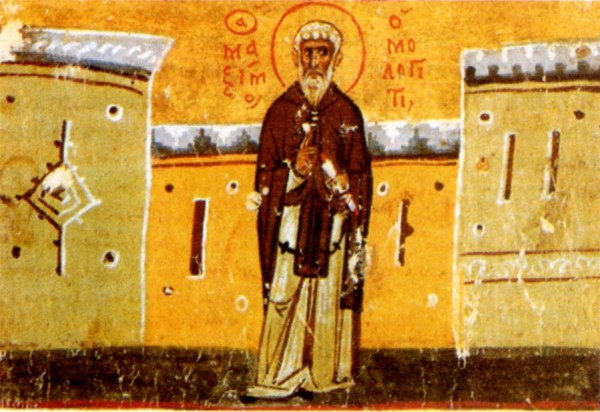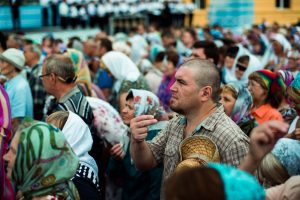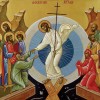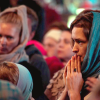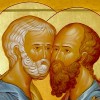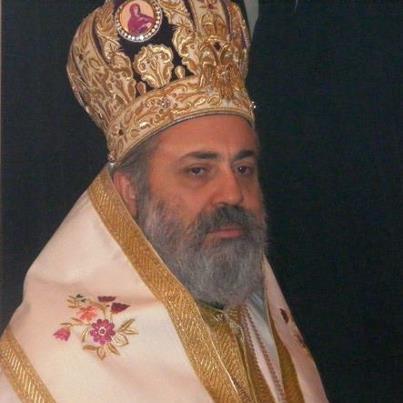
Metropolitan Paul (Rami) Yazigi
In both writings referred to, St Maximus does not literally mention the church’s unity between Christians. Nevertheless, he was one of the champions defending the truth on behalf of the one catholic (καθολική) church and its unity.
As we are gathered in a Christian meeting, I would like to mention, shortly but clearly, St Maximus’ idea about unity. The world cannot be real and united unless in God. If unity between scattered parts means that they come to union with God in order to unite between themselves, then unity between Christians is achieved in ‘Orthodoxy’, understood here as truthfulness of faith rather than having any congregational connotation. The ‘catholicity’ of the church can not be accomplished without ‘orthodoxy’: the church is one and unique, and is catholic meaning that she bears the fullness and plenitude of truth, without any lack in the truthfulness of faith. It is well known that St Maximus, when he was informed of the new confession of faith (ομολογία) that all the bishops had signed (τόμος) thereby accepting false statements, responded boldly: “I am the catholic apostolic church”. For the church is Christ and cannot be determined by quantity. The power of the church is Truth and not some worldly criteria varying between different confessions and communities. Truth in the Orthodox tradition is not ideology, but the way of life. Orthodoxy is the Way, the Truth and Life in its fullness in spirit with God. St Maximus’ position is not far from the example that St Dorotheos provides: men are like points of a circle. Whenever these points go far away from the center, they are more separate between themselves, but whenever each point draws closer to the center of the circle, it gets closer to the other points. Communion with God is the ground on which people gather. Unity in Christ brings out our unity. The Church’s unity is neither a confederation where each member conserves what he has, nor a Christian ‘cooperative’.
In this context, St Maximus’ position regarding the heresy of monotheletism (μονοθελητισμός) was neither a dogmatic nor a rational or philosophical matter, as it is often referred to today. Rather, St Maximus expressed his understanding of whether our will is able or not able to acquire what Christ had. If Christ had only one divine will that swallowed his human will, our will would therefore not be in the likeness of His will, something that would have resulted in our incapacity to reach the purpose of life, i.e. being in His likeness and reaching deification. But human and divine will can unite and become one without the one excluding the other, in full accord. Whatever happened to Christ can occur with us, i.e. our will come to concordance to the divine will, whenever we want it and fight for it.
Seeking the unity of the churches outside of the Truth implies a loss of the church, according to St Maximus. The one, holy, catholic and apostolic Church is all of the churches when they meet in Christ, the “Truth”. All the churches have developed cooperation between each other and with other religions and might have common projects and pastoral work. However, even though this collaboration is blessed, this fact does not imply ‘Unity’.
Unity, according to St Maxim, is built upon the “one spirit’ between man and woman, the slave and the free, man and angels, man and his brethren, and also between one church and another.












